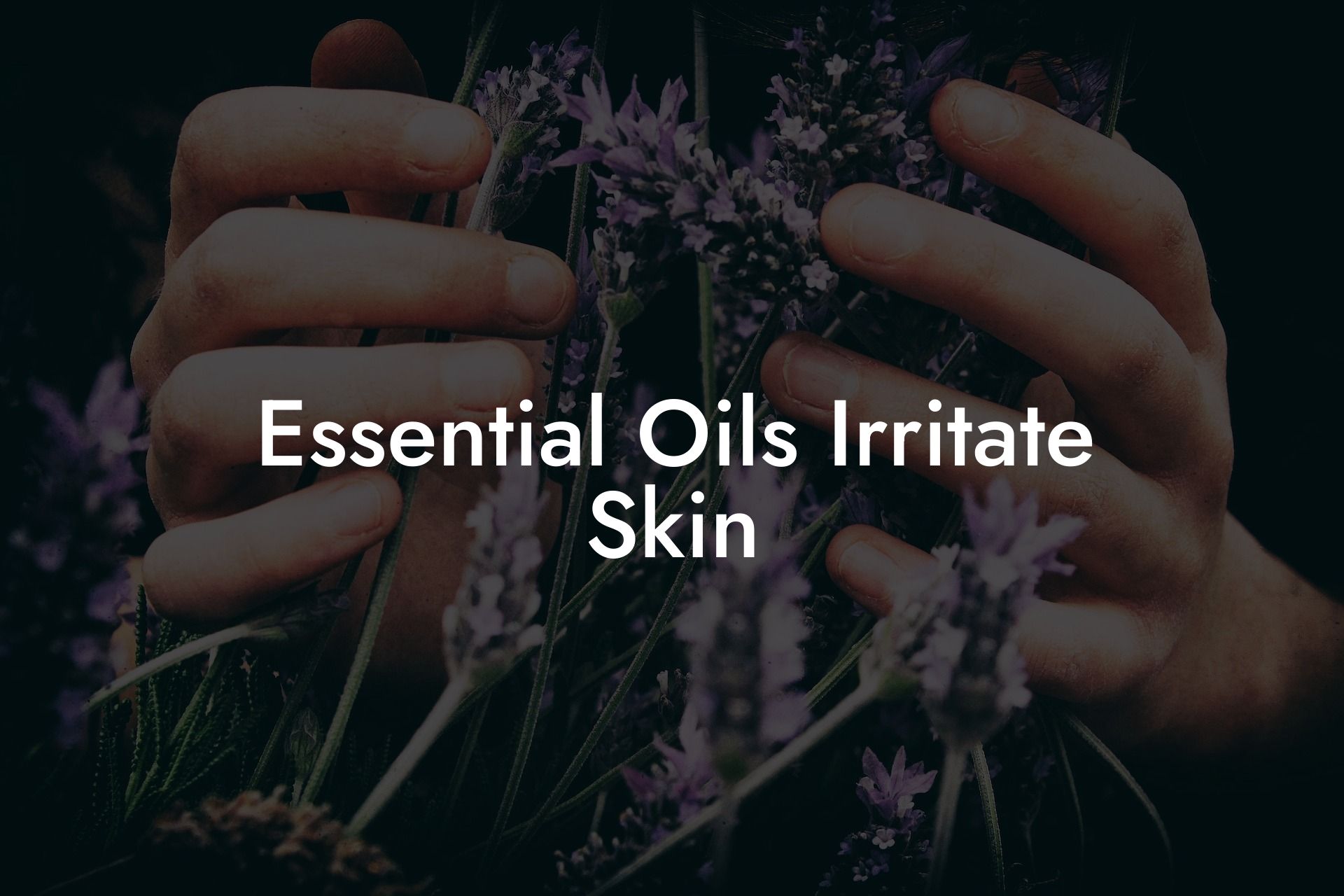Have you ever experienced an uncomfortable itch or burning sensation after using essential oils? Skin irritation is a common issue faced by many essential oil users, but fear not! In this helpful guide, we will explore the reasons why essential oils can cause skin irritation and share invaluable tips to help you avoid this frustrating situation.
Table of Contents
Why Essential Oils Can Irritate Your Skin
Essential oils are highly concentrated plant extracts that possess powerful properties. Due to their potency, they can sometimes cause skin irritation, particularly if not used properly. Here are some common reasons why essential oils can irritate your skin:
Allergic Reactions
Some individuals may be allergic to certain essential oils or their components. An allergic reaction occurs when your immune system perceives a substance as harmful, resulting in itching, redness, and sometimes even rashes or blisters.
Chemical Components
Essential oils contain various chemical constituents that may cause irritation for those with sensitive skin or specific allergies. For instance, some oils like cinnamon, lemongrass, and clove contain aldehydes, which can be irritating to the skin.
Photosensitivity
Some essential oils, particularly citrus oils like bergamot, lime, and lemon, can make your skin more sensitive to sunlight, increasing the risk of sunburn, rashes, and discoloration.
Improper Dilution
Due to their high concentration, essential oils should be diluted with a carrier oil before topical application. Using undiluted oils on the skin can cause severe irritation, redness, and even burns in some cases.
How to Prevent Skin Irritation from Essential Oils
Now that we’ve explored some common reasons behind essential oil-induced skin irritation, let’s discuss effective preventive measures you can take to ensure a pleasant aromatherapy experience:
Patch Test
Before using a new essential oil, it’s wise to conduct a patch test on a small area of your skin. Mix a few drops of the essential oil with a carrier oil and apply it to the inner forearm or behind the ear. Wait 24 hours to see if any reaction occurs, like redness, itching, or swelling. If your skin reacts negatively, avoid using that particular oil.
Dilute Properly
Diluting essential oils with a carrier oil is crucial to preventing skin irritation. A general guideline to follow is a 2% dilution, which means adding 12 drops of essential oil to 1 ounce (30 ml) of carrier oil.
Choose High-Quality Oils
Not all essential oils are created equal. Low-quality or adulterated oils can increase the risk of skin irritation and may not provide the desired therapeutic effects. Always invest in pure, high-quality essential oils from reputable sources like Oshu Oils.
Store Oils Correctly
Exposure to light, heat, and air can cause essential oils to degrade and develop components that can irritate your skin. Store your essential oils in a cool, dark place in dark-colored glass bottles.
Essential Oils Irritate Skin Example:
Imagine you’ve just purchased a bottle of bergamot essential oil and excitedly blend it into your DIY body lotion. After applying the lotion and spending a sunny day outdoors, you notice your skin become red, irritated, and unusually sensitive to the sun. This is a prime example of photosensitivity caused by citrus oils and poor dilution. You can avoid this situation by diluting the oil properly, performing a patch test, and using sun protection when using photosensitive oils.
We hope this comprehensive guide on essential oils and skin irritation has been helpful in understanding the causes and preventative measures for a more pleasant and safe aromatherapy experience. If you found this article informative, please share it with your friends and family to help them enjoy the benefits of essential oils without the discomfort of skin irritation. Don’t forget to explore our other informative guides on Oshu Oils to further enhance your knowledge about essential oils and aromacology. And lastly, visit our Oshu Oils range to find top-quality essential oils to support your well-being.





















